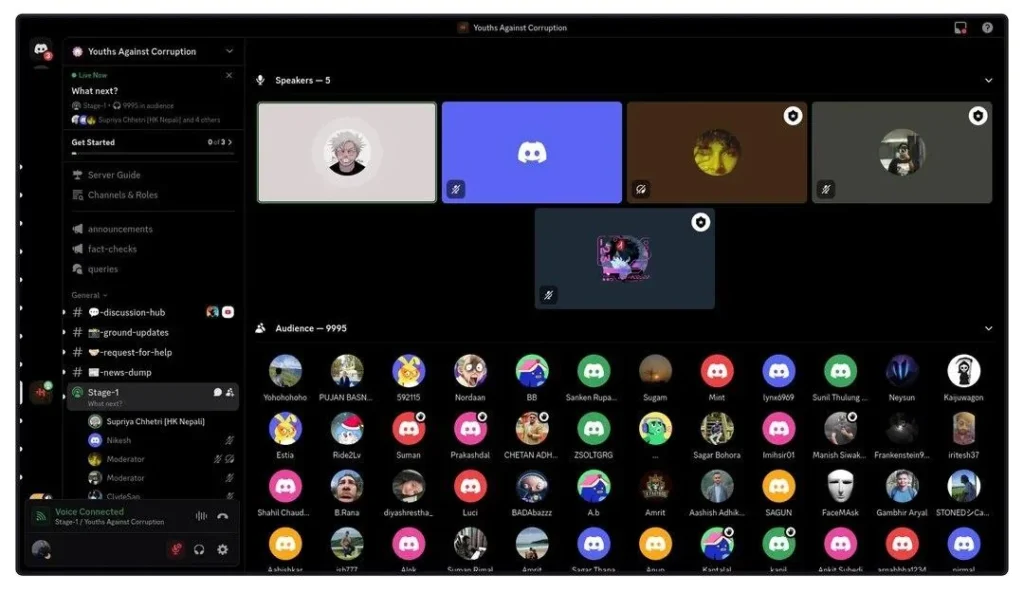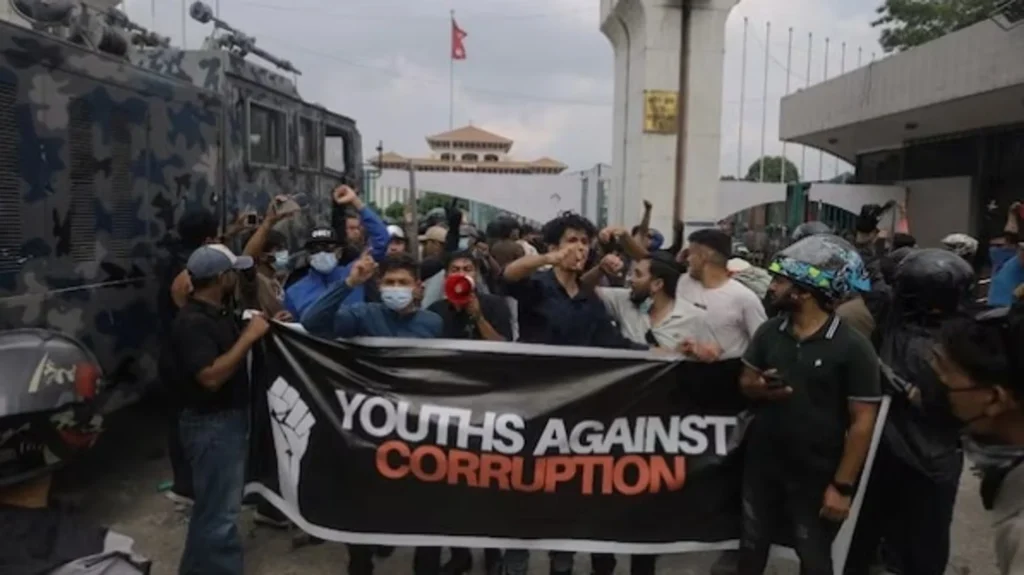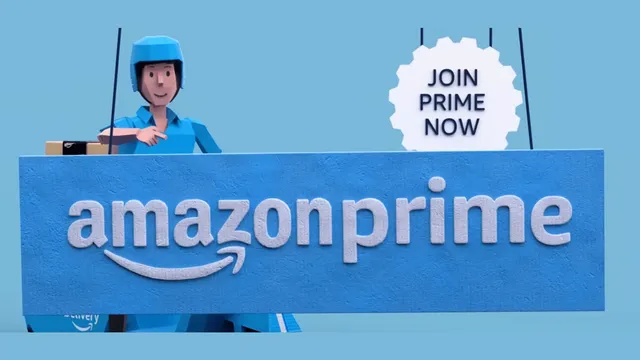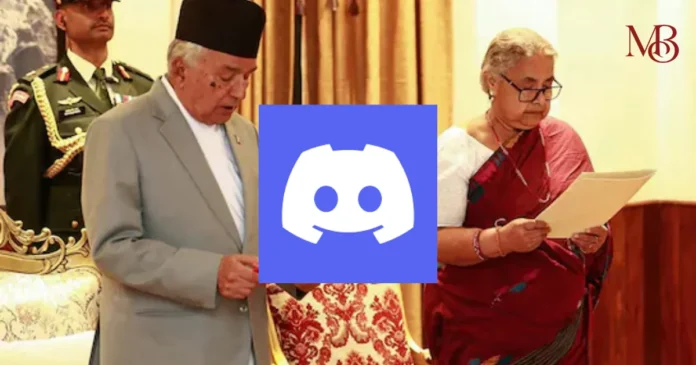Imagine a country in political turmoil, with streets filled with chanting voices and smartphones buzzing louder than loudspeakers. Now imagine the same country seeing its interim Prime Minister rise not from parliament’s hushed corridors, but from heated debates, memes, and polls on Discord servers. Sounds like a scene from a dystopian Netflix series? Welcome to Nepal in 2025, where Nepal’s government chosen on Discord.

“Nepal’s Government Chosen on Discord” captures a surreal yet real moment where digital democracy clashed with constitutional formality. Gen Z, armed with emojis, hashtags, and unlimited Wi-Fi packs, didn’t just vent online. They built consensus, nominated leaders, and influenced a government.
But is this truly a government “chosen” on Discord, or a symbolic rebellion against a failing political class? Let’s dive into the story where a chatroom became a political battlefield.
The Political Backdrop: Why Nepal’s Streets Exploded
Nepal has long wrestled with unstable governments. Since abolishing its monarchy in 2008, the nation has seen more Prime Ministers than many have seen new iPhones. The 2025 protests were triggered by something deceptively small a government ban on social media apps.
For a generation raised on TikTok dances, Instagram reels, and Discord debates, this was the last straw. The ban wasn’t seen as “internet regulation”; it was seen as an attempt to silence youth voices. Overnight, Kathmandu’s streets swelled with students, freelancers, and unemployed graduates. Placards read: “Uninstall Corruption, Not Apps” and “We Meme, Therefore We Exist.”
This digital native generation didn’t wait for newspapers or political parties to lead. They logged into Discord.
The Discord Revolution: From Gaming Chats To Politics
Discord, once the go-to place for gamers yelling “cover me” in PUBG, suddenly turned into Nepal’s most important political stage.
A server called Youth Against Corruption became ground zero. Within days, membership shot past 100,000. Voice channels buzzed like parliament debates, text channels resembled manifestos, and moderators suddenly found themselves acting like digital Speaker of the House.
Polls were launched: “Who should be our next leader?”
Suggestions flew: civil society activists, academics, even celebrities. Amidst the noise, one name rose: Sushila Karki, Nepal’s first female Chief Justice, respected for her integrity.
And so the viral headline was born: “Nepal’s Government Chosen on Discord.”
Symbolism Vs Reality: Did Discord Truly Elect A Leader?
Legally, no. Discord polls do not replace Nepal’s constitutional machinery. The President, backed by the army and advisors, officially appointed Sushila Karki as interim Prime Minister after dissolving parliament.
But symbolically, yes. The legitimacy of her appointment was massively bolstered by the youth consensus on Discord. In a nation where public trust in politicians is microscopic, the online “vote” felt more authentic than any parliamentary horse-trading.
Think of it as the world’s first digital shadow election not binding, but impossible to ignore.
Why Gen Z Believes In Digital Democracy
- Distrust in politicians – Traditional parties are seen as corrupt, dynastic, and outdated.
- Digital upbringing – For Gen Z, decision-making through polls, likes, and upvotes feels natural.
- Accessibility – A Discord channel allowed a rural teen with a smartphone to voice the same opinion as a Kathmandu lawyer.
- Transparency – No backroom deals, no sealed envelopes. Just open debate and visible poll results.
For them, “Nepal’s Government Chosen on Discord” wasn’t a gimmick. It was democracy 2.0.

Global Echoes: A Warning And An Inspiration
Nepal isn’t alone in seeing digital platforms influence politics. Myanmar’s protests used Facebook, Pakistan’s opposition rallies grew via Twitter, and Sri Lanka’s crisis saw WhatsApp groups as lifelines.
But Nepal’s case is unique because it blurred the line between protest and governance. The youth didn’t just demand resignation, they actively proposed successors.
This terrifies traditional elites. If a chat app can shape government in Nepal, what stops it from happening in Bangladesh, or even parts of Europe where disillusionment is growing?
The phrase “Nepal’s Government Chosen on Discord” is already a case study in political science classrooms and think-tank reports. Some call it inspiring, others call it dangerous.
Risks Of A Discord-Led Democracy
While romantic, digital democracy isn’t flawless.
- Verification Issues – How do you ensure only Nepali citizens are voting?
- Manipulation – Bots, fake accounts, or foreign interference could skew polls.
- Oversimplification – Complex governance cannot be reduced to emoji reactions.
- Constitutional Clash – No digital vote can legally override parliamentary systems yet.
Without safeguards, the same Discord that empowered youth could become a weapon of misinformation.
How The World Reacted
International media splashed headlines: “Nepal’s Discord Election Shocks The World.” Tech forums debated if this was the future of governance. Politicians in India and Pakistan watched nervously, while Chinese commentators warned it was “chaos disguised as democracy.”
Meanwhile, memes spread faster than news reports: a cat in sunglasses captioned “Prime Minister Meow, elected by Discord Nation.”
Behind the humour, though, was a serious undercurrent: people everywhere saw the cracks in old systems and the possibilities in digital alternatives.
The Cultural Shift In Nepal
The protests weren’t just about politics; they reshaped Nepal’s cultural identity.
- Language Of Memes: Protest banners carried hashtags, anime references, and gaming slang.
- Youth Solidarity: Students, influencers, and even diaspora Nepalis joined the Discord servers, bridging borders.
- Female Leadership: Sushila Karki’s nomination via Discord was historic the first time a woman was propelled into leadership through digital consensus.
It showed that Nepal’s youth weren’t just angry; they were imaginative, organised, and unafraid to rewrite the rulebook.
Could This Be The Future Of Elections?
Experts argue we may one day see hybrid models:
- Online consultations feed into parliamentary debates.
- Digital town halls are replacing physical rallies.
- Blockchain-based secure voting ensures transparency.
If Nepal’s experiment proves influential, “Nepal’s Government Chosen on Discord” could become shorthand for a new age of people-driven governance.

The story of “Nepal’s Government Chosen on Discord” isn’t just a headline, it’s a mirror reflecting the frustrations of a young, restless generation. Nepal’s Gen Z didn’t wait for ballot boxes or broken promises. They transformed their gaming chats into a virtual parliament and compelled the world to take notice.
Also Read: Nepal Parliament Burning?
Whether you see it as democracy’s next leap or a dangerous oversimplification, one thing is certain: politics will never again be confined to marble halls and parliamentary tables. It now resides on the same platforms as memes, emojis, and livestreams on our screens.
Also Read: Nepal Political Crisis Deepens As Death Toll Rises, Interim Leadership Talks Begin
The question that remains: was Nepal’s Discord election an anomaly, or the first spark of a new digital revolution in governance? The world is watching.
FAQs About Nepal’s Discord Election
Q1. Did Nepal really elect its government on Discord?
Not legally. The government was appointed through constitutional authority, but Discord polls strongly influenced who was chosen as interim Prime Minister.
Q2. Who was chosen as interim leader?
Sushila Karki, Nepal’s first female Chief Justice, was nominated by Discord youth consensus and later formally appointed by the President.
Q3. How many people participated in the Discord movement?
Over 100,000 members joined the “Youth Against Corruption” server, making it one of Nepal’s largest online civic gatherings.
Q4. Can digital platforms replace real elections?
Not yet. Constitutional frameworks still require parliamentary or public elections, but digital platforms are increasingly shaping political direction.
Q5. Why is this event globally significant?
Because it’s the first time in modern politics that a mass online chat platform has visibly influenced the appointment of a national leader, challenging traditional systems.


